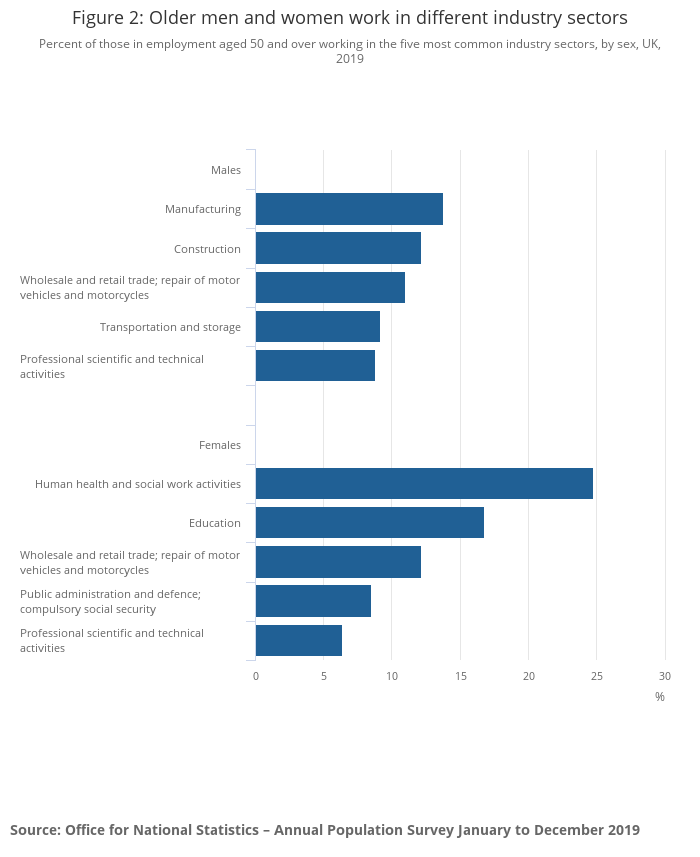People aged 50 and over who become unemployed are more at risk of long-term unemployment than younger people, said an Office for National Statistics (ONS) report.
While the impact of the coronavirus (COVID-19) pandemic has been greatest for younger workers, older workers aged 50 years and over have been affected to a greater extent than those in the middle age groups.
In December 2020 to February 2021, those employees aged 50 years and over were more likely to report working fewer hours than usual (including none) because of the coronavirus than those aged under 50 years, with those aged 65 years and over the most likely to say they had worked reduced hours.
Over 50s dominate self-employed workplace

Those aged over 50 are far more likely to be self-employed than younger workers, with self-employment increasing with age and men being more likely to be self-employed than women in all older age groups, said the ONS.
Men in this age group are most likely to be working in manufacturing, construction, wholesale, retail and repair of motor vehicles, while women workers the most common industries are health and social work, education, wholesale, retail and repair of motor vehicles.

How much of the UK’s workforce is 50 years and over?
Those aged 50 years and over make up an increasing proportion of the workforce in the UK. Prior to the onset of the coronavirus (COVID-19) pandemic, in 2019, almost a third of workers were aged 50 years and over.
In 2019, prior to the start of the pandemic, 72.3% people aged 50 to 64 years were in employment, 2.0% were unemployed1 and 25.7% were economically inactive. While the proportion of older people in work declines with age, 1 in 10 people aged 65 years and over were still working.
Today, 3 in 10 of older workers on furlough think there is a 50% chance or higher that they will lose their job when the scheme ends, according to ONS survey results. Over a quarter of furloughed employments are people aged 50 years and over (1.3 million).
When it comes to pensions and retirement, the ONS said one in eight workers aged 50 and over had changed their retirement plans as a result of the pandemic. Some 5 per cent planned to retire earlier and 8 per cent planned to stop work later. Those on furlough are most likely to have changed their plans: 10 per cent planned to retire earlier and 9 per cent later.
The impact of the coronavirus on older workers will have varied according to their different characteristics, leading to different experiences of the pandemic. If more workers over 50 are let go from their employers when the furlough scheme ends in September is yet to be seen. However, if they are, they will have their years of experience to bring to the freelancer economy and the companies and people it serves.


